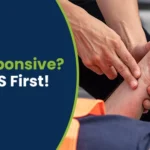Table of Contents:
- Introduction
- What is BLS Certification?
- How long is a BLS certification good for?
- Who needs to keep their BLS Certification updated?
- Benefits of BLS certification
- How to Renew Your BLS Certification
- Tips to Keep Your BLS Skills Sharp
- Final Thoughts
Emergencies can happen anywhere, so you need to be prepared to face them. Imagine you’re at school or the park, and suddenly, someone near you stops breathing or starts choking. It’s a scary moment, but what if you knew exactly what to do to help? That’s where Basic Life Support (BLS) comes in. BLS is a skill that teaches you how to save lives in emergencies by performing CPR or even operating an AED, a device that helps restart hearts.
In this guide, we’re going to explore how long a BLS class is and how often you need to renew it. Whether you’re a parent, a teacher, or just someone who wants to be prepared, learning BLS can turn you into a real-life hero. You can help keep someone alive until the paramedics arrive by learning this skill. So, let’s dive in and learn to save lives and be ready for anything that comes your way!
Master BLS Now
Get BLS certified with confidence
What is BLS Certification
BLS certification’s meaning is simple: it’s proof that you can provide basic life support in emergencies. It covers the essential skills and knowledge needed to provide immediate care in life-threatening situations. The training typically includes several key topics, such as:
- CPR: This covers how to perform CPR (Cardiopulmonary Resuscitation) on adults, children, and infants. You’ll learn the proper techniques for delivering chest compressions and rescue breaths tailored to each age group.
- AED (Automated External Defibrillator) Usage: Participants learn how to operate an AED during cardiac arrest, including how to properly place the pads and deliver a shock to restore a normal heart rhythm.
- Team Dynamics: Participants learn how to effectively work as part of a team during a resuscitation effort. They will also learn to communicate clearly and assign roles in scenarios with multiple rescuers.
- Bag-mask ventilation: Proper technique and timing are emphasized to ensure effective ventilation.
Learning theory and applying practical skills are part of the certification process. Many wonder how long it takes to get a BLS certification. A course typically takes about four to five hours to complete. However, this can vary depending on the provider and class format. Regular recertification ensures that your skills remain current with the most recent emergency treatment guidelines.
Now that we know the duration of BLS training, let’s examine the validity of the certification.
Read More: How to get BLS certification?
How long is a BLS certification good for?
The question “How long does BLS certification last?” doesn’t have a one-size-fits-all answer. A BLS (Basic Life Support) certification usually lasts for two years. This means that once you complete the course and get certified, you’ll need to renew it after two years to keep your certification active. The reason for this is that medical guidelines and emergency procedures can change, and it’s important to make sure your skills stay current and effective.
However, the exact length of time your BLS certification is valid can sometimes vary. Different certifying organizations might have their own rules, and some workplaces might have stricter requirements. For example, if you work in a high-risk environment like a hospital or emergency service, your employer might require you to renew your BLS certification every year instead of every two years.
To ensure you’re always prepared, check the expiration date on your certificate and understand your workplace’s policies. Don’t wait until the last minute to renew! Many organizations offer refresher courses that are quicker and shorter than the original course.
Why Does a BLS Certificate Expire?
Research shows that more than 350,000 cardiac arrests occur every year. By having a BLS certificate, you can ensure that you respond effectively to such situations. Over time, skills and guidelines can change, which is why a BLS certificate has an expiration date.
- Skills Can Be Forgotten: Just like any skill, BLS (Basic Life Support) techniques need regular practice. If you don’t use these skills often, it’s easy to forget important steps. For example, you might forget how to perform chest compressions or give rescue breaths overtime properly. An expired BLS certificate is a reminder to refresh your training so that you can respond quickly and correctly in an emergency. Renewing your certification helps keep your skills sharp and your confidence high.
- Guidelines Change Over Time: The medical community is always learning new things about how to save lives more effectively. As research improves, the guidelines for performing BLS might change. For instance, the way CPR is performed today is different from how it was done years ago. When your BLS certificate expires, it ensures you learn these updated guidelines so that you’re always using the most effective techniques.
- Technology Keeps Advancing: New tools and devices are regularly being developed to help in emergencies, like improved AEDs (Automated External Defibrillators) or other life-saving equipment. An expired BLS certificate allows you to learn about and practice using these new tools, keeping your knowledge up-to-date with the latest advancements in technology.
- Job Requirements: In many jobs, especially in healthcare and education, employers require their workers to have a current BLS certificate. Sometimes, the law also sets rules on how often people need to renew their certificates. This ensures that workers are always ready to respond quickly in an emergency. Depending on where you work or live, you might need to renew your BLS certification more often.
In summary, a BLS certificate expires to ensure that your skills stay fresh, you’re up-to-date with the latest knowledge and tools, and you’re fully prepared to help in an emergency.
Who Needs to Keep Their BLS Certification Updated?
A Basic Life Support (BLS) certificate is essential for anyone who might need to respond to emergencies where someone’s life is at risk. We have already seen how long it takes to get a BLS certification; let us see who should consider getting a BLS certificate:
- Healthcare Workers: Doctors, nurses, paramedics, and other healthcare professionals are often required to have a BLS certificate. They need these skills to perform CPR, use an AED (automated external defibrillator), and provide basic first aid in emergency situations.
- First Responders: Firefighters, police officers, and emergency medical technicians (EMTs) are typically the first to arrive at the scene of an emergency. A BLS certificate equips them with the necessary skills to stabilize a person until more advanced medical care is available.
- Childcare Providers and Teachers: People who work with children, such as daycare workers, teachers, and school staff, should have a BLS certificate. Children can have accidents or medical emergencies, and being trained in BLS helps ensure they get the help they need right away.
- Lifeguards and Fitness Instructors: These professionals work in environments where emergencies can happen suddenly, such as near water or during intense physical activity. A BLS certificate ensures they can respond quickly if someone has a medical emergency.
- Family Members of High-Risk Individuals: If you live with or care for someone who has a medical condition that puts them at risk, such as heart disease, getting a BLS certificate can prepare you to act quickly in case of an emergency.
Benefits of BLS certification
Getting BLS certification is important for anyone who wants to help in emergencies. Whether you need it for your job or just want to be prepared, having a BLS certification means you can make a real difference. Here are some key benefits of being BLS certified:
Saving Lives
The most important benefit of a BLS certification is that it teaches you how to save lives. You learn skills like CPR (cardiopulmonary resuscitation) and how to use an AED (automated external defibrillator). You need these skills when someone is in serious trouble, like having a heart attack or choking. With BLS training, you can help keep someone alive until medical help arrives.
Job Requirements
Many jobs, especially in healthcare, require a BLS certification. Doctors, nurses, paramedics, and other healthcare workers need to have it to ensure they’re ready to handle emergencies. Even if you’re not in healthcare, jobs like being a teacher, lifeguard, or fitness instructor might require it. Having a BLS certification can also make you stand out when applying for jobs.
Preparedness in Various Settings
BLS certification isn’t just for healthcare professionals. Parents, teachers, childcare providers, lifeguards, and fitness instructors often find themselves in situations where someone’s health and safety might be at risk. When you are certified, you can respond to emergencies in a variety of settings, whether at home, work, or in public places.
Confidence in Emergencies
Emergencies can be stressful, and knowing how to respond effectively can reduce panic and improve outcomes. BLS certification provides the training needed to remain calm and take the appropriate steps during an emergency. The skills you learn in a BLS course give you the confidence to act quickly and correctly when it matters most.
Contributing to Community Safety
By obtaining a BLS certification, you contribute to the overall safety of your community. When more people are trained in BLS, the community is better prepared to handle emergencies. It will thus lead to quicker response times and also have better victim outcomes.
How to Renew Your BLS Certification
The validity of a BLS certificate is not fixed. Several factors, such as job requirements and advancements in technology, influence how long a BLS certification is good for. If your Basic Life Support (BLS) certification is about to expire, here’s a simple guide to help you renew it:
Find a Trusted Course
Start by finding a BLS renewal course offered by a recognized organization. You have a few options: in-person classes, online courses, or a mix of both, known as blended learning. In-person classes are great because they offer hands-on practice, which is crucial for mastering life-saving skills. Online courses, on the other hand, let you learn at your own pace, which is convenient if you have a busy schedule.
Sign Up for the Course
Once you’ve found the right course, the next step is to register. You can do this on the certifying organization’s website or through an authorized training center. Make sure to pay the course fees during registration. The cost can vary depending on the provider and whether you choose an in-person, online, or blended course.
Get Ready for the Course
Before the course starts, take some time to refresh your knowledge. Review the latest BLS guidelines and go over your old course materials. Focus on the key skills, such as chest compressions, rescue breathing, and how to use an Automated External Defibrillator (AED). If possible, practice these skills with a partner or on a training manikin to ensure you’re ready for the hands-on part of the course. So, how long does it take to get a BLS renewal class done? The class takes around three hours to complete.
Complete the Course
Participate in all the required sessions, whether online modules, in-person classes, or a combination of both. You’ll need to pass a written test that covers important BLS concepts, and you’ll also have to demonstrate your skills through hands-on practice. This usually includes CPR for adults, children, and infants, as well as proper AED use.
By following these steps, you’ll successfully renew your BLS certification and be ready to respond confidently in an emergency.
Read More: BLS Certification for Physical Therapy
Final Thoughts
The validity of a BLS certificate is not fixed. It usually lasts two years, but several factors may affect its length of time. The key is to stay updated about your certification status and be proactive. Regular practice and staying current with the latest guidelines are critical for maintaining your ability to provide effective life-saving assistance.
BLS certification is not only a professional necessity but also a commitment to personal development and public safety. Staying updated with your certification ensures you are always prepared to handle emergencies. Take control of your BLS certification management now.
Have you checked your BLS certificate lately? Is it about to expire? If so, find a renewal class near you and keep those life-saving skills fresh! If you haven’t taken BLS training yet, now’s the perfect time to sign up. You can make a difference and maybe even save a life one day.







